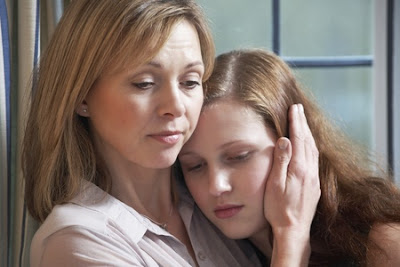When parents divorce, the children are just as affected, if not more, than the parents. They can experience a raft of emotions depending on their age, gender and other factors. Counseling can help in cases where a child shows signs of serious depression or maladaptive behavior such as getting into legal trouble for a variety of factors.
The list below was written for parents to show their children how to protect themselves and the know their “rights” regarding your divorce.
Your children have the “right” to:
- Know the truth about your divorce, with simple explanations. Divorce can be complicated but children should be told the truth about it in the simplest terms possible depending on the age and maturity of the child.
- Be protected from parental warfare. Children should not be used as pawns in the divorce and a co-parenting settlement should be attempted if at all possible.
- Develop and maintain an independent relationship with each
parent. A relationship with both parents should be encouraged if at all possible.
- Be free from having to take sides with, defend, or denigrate either
parent. Children should not have to make a choice on who to take sides with in a divorce or be told negative or derogatory things about either parent.
- Be free of responsibility for having caused the divorce. Children need to know and be reassured that they are not at fault in the break-up.
- Be free from having to take over parental responsibilities. A child should not have to become the "man of the house" or the "little mother”.
- Expect that both parents will follow through with the parenting
plan and honor specific commitments for scheduled time with
their child. At this point, and with this big life transition for the child, it’s important that parents be consistent with their planned commitments with them.
- Expect that both parents will inform each other about medical,
dental, education and legal matters concerning the child. Communication between parents after the divorce is key in protecting the children’s welfare.
- Receive love, guidance, patience, understanding, and limits from
their parents. Despite the divorce and accompanying life change, children should still have set boundaries, rules and guidelines to follow—along with the above-mentioned traits.
For children to feel safe and loved by both parents is instrumental in the child's emotional well-being and development into a fully-functioning adult. It's imperative for the divorced couple to put their own agenda's and complaints aside in order to maintain healthy relationships with their children.
